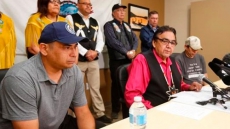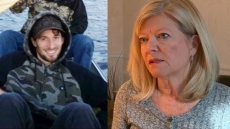WINNIPEG — A former Manitoba marriage commissioner is asking a court to strike down the province's requirement that all commissioners perform same-sex marriage ceremonies.
Kevin Kisilowsky, who was forced out of his position when the issue erupted more than a decade ago, says the requirement violates his freedom of religion because he is a Christian who believes that same-sex marriage is sinful.
"Mr. Kisilowsky believes that the rights of same-sex couples to be married can be respected without forcing each and every marriage commissioner in Manitoba to perform such ceremonies, if the performance of such a ceremony would be against his or her conscience," reads a factum by Kisilowsky's lawyer, Jay Cameron, filed in advance of Thursday's scheduled hearing.
Kisilowsky was one of several marriage commissioners who either quit or had their privileges revoked following a 2004 Supreme Court of Canada ruling that legalized same-sex marriage. Like other provinces, Manitoba soon instructed marriage commissioners that they would be expected to follow the law and perform ceremonies for all couples.
Unlike priests, rabbis and other religious officials, marriage commissioners perform civil ceremonies only and must follow provincial guidelines. That is key to the argument, the Manitoba government says.
Kisilowsky "can hold his Christian beliefs in his everyday life and employment without interference by Manitoba," the government said in its written submission. "But when he volunteers to be a provincially licensed marriage commissioner ... he must marry everyone without engaging in discrimination."
Kisilowsky originally tried to file a complaint with the province's human rights commission but it was dismissed.
The government points to a 2011 Saskatchewan Court of Appeal ruling on proposed changes that would have allowed marriage commissioners in that province to refuse to conduct services that violated their religious beliefs. The court ruled the changes would have given commissioners an exemption from the province's human rights code, and similar logic could be argued by landlords, restaurant owners and others.
Kisilowsky is still allowed to conduct marriages. Like all members of the public, he can apply for a temporary, one-time permit to officiate a wedding. But getting such a permit can take several weeks and the requirement is a hardship, his lawyer argues.
"Due to the wait time, and the fact that many of the candidate couples want to get married within a short time period ... Mr. Kisilowsky has been forced to turn away at least four couples who he would have previously been able to marry."





